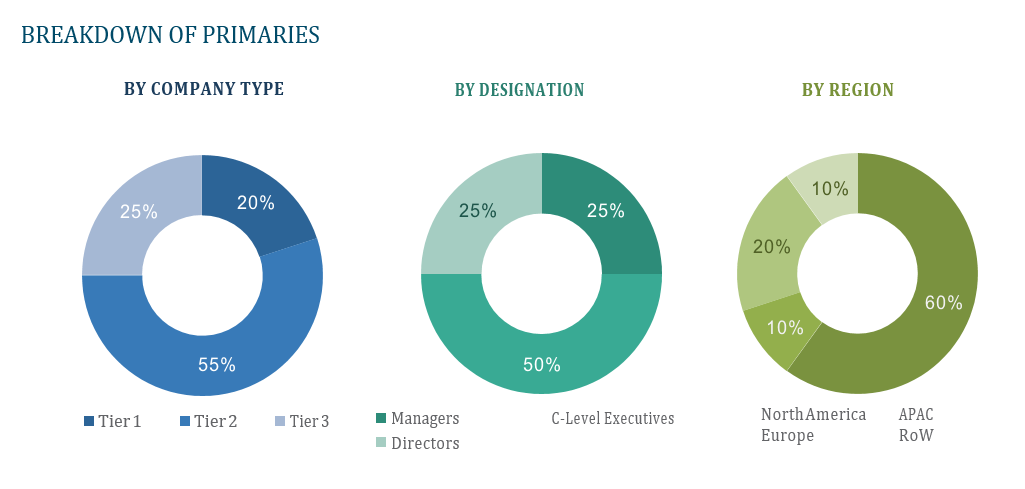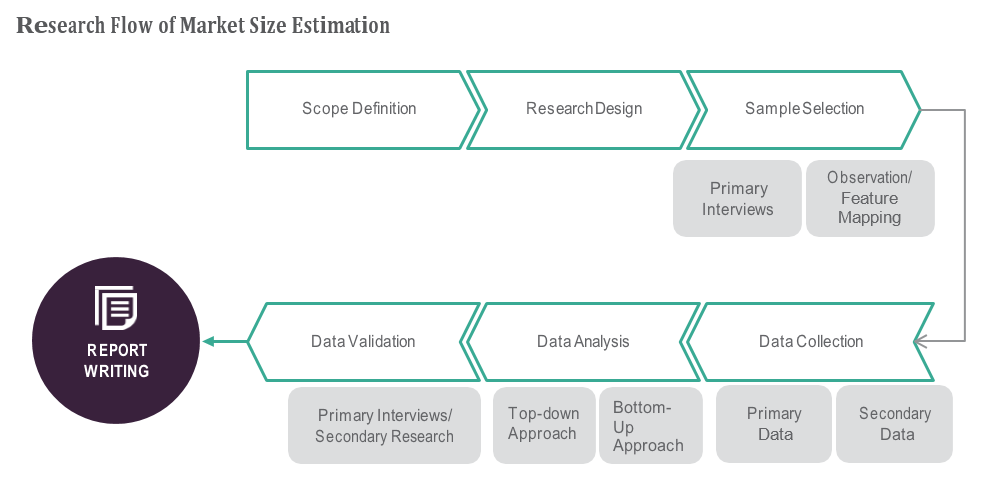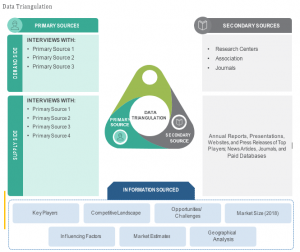OVERVIEW
The Industrial Networking Solutions Market is currently valued at USD 29.2 billion in 2024 and will be growing at a CAGR of 20.2% over the forecast period to reach an estimated USD 73.3 billion in revenue in 2029. The industrial networking solutions market encompasses a wide array of technologies and services designed to facilitate communication and data exchange within industrial environments. These solutions play a crucial role in enabling automation, monitoring, and control of various processes in industries such as manufacturing, oil and gas, transportation, and utilities. Key components of industrial networking solutions include industrial Ethernet, wireless technologies, fieldbus protocols, and networking equipment such as switches, routers, and gateways. With the growing adoption of Industry 4.0 initiatives and the increasing need for seamless connectivity between devices and systems, the demand for robust and reliable industrial networking solutions is on the rise. Companies operating in this market are continuously innovating to address the evolving needs of industrial applications, driving advancements in areas such as cybersecurity, interoperability, and scalability to ensure the smooth operation of critical infrastructure and processes.
The rapid digitization and adoption of Industry 4.0 practices across various industrial sectors drive the demand for advanced networking infrastructure to support interconnected devices and systems. This includes the integration of IoT devices, sensors, and automation equipment, necessitating reliable and high-speed communication networks. Additionally, the increasing emphasis on operational efficiency, productivity, and cost reduction fuels the deployment of industrial networking solutions to streamline processes, optimize resource utilization, and minimize downtime. Moreover, the rise of smart factories and the need for real-time data analytics and decision-making further accentuates the importance of robust networking solutions capable of handling large volumes of data securely and efficiently. Furthermore, stringent regulations pertaining to safety, compliance, and environmental standards drive investments in industrial networking solutions to ensure adherence to regulatory requirements and mitigate risks associated with operational disruptions or breaches. Overall, the convergence of these factors fosters a favorable environment for the growth of the industrial networking solutions market, prompting organizations to invest in scalable, interoperable, and future-proof networking infrastructure to stay competitive in an increasingly digitalized landscape.
Table of Content
Market Dynamics
Drivers:
The Industrial Networking Solutions Market is currently valued at USD 29.2 billion in 2024 and will be growing at a CAGR of 20.2% over the forecast period to reach an estimated USD 73.3 billion in revenue in 2029. The industrial networking solutions market encompasses a wide array of technologies and services designed to facilitate communication and data exchange within industrial environments. These solutions play a crucial role in enabling automation, monitoring, and control of various processes in industries such as manufacturing, oil and gas, transportation, and utilities. Key components of industrial networking solutions include industrial Ethernet, wireless technologies, fieldbus protocols, and networking equipment such as switches, routers, and gateways. With the growing adoption of Industry 4.0 initiatives and the increasing need for seamless connectivity between devices and systems, the demand for robust and reliable industrial networking solutions is on the rise. Companies operating in this market are continuously innovating to address the evolving needs of industrial applications, driving advancements in areas such as cybersecurity, interoperability, and scalability to ensure the smooth operation of critical infrastructure and processes.
The rapid digitization and adoption of Industry 4.0 practices across various industrial sectors drive the demand for advanced networking infrastructure to support interconnected devices and systems. This includes the integration of IoT devices, sensors, and automation equipment, necessitating reliable and high-speed communication networks. Additionally, the increasing emphasis on operational efficiency, productivity, and cost reduction fuels the deployment of industrial networking solutions to streamline processes, optimize resource utilization, and minimize downtime. Moreover, the rise of smart factories and the need for real-time data analytics and decision-making further accentuates the importance of robust networking solutions capable of handling large volumes of data securely and efficiently. Furthermore, stringent regulations pertaining to safety, compliance, and environmental standards drive investments in industrial networking solutions to ensure adherence to regulatory requirements and mitigate risks associated with operational disruptions or breaches. Overall, the convergence of these factors fosters a favorable environment for the growth of the industrial networking solutions market, prompting organizations to invest in scalable, interoperable, and future-proof networking infrastructure to stay competitive in an increasingly digitalized landscape.
Key Offerings:
Key offerings in the industrial networking solutions market encompass a wide spectrum of products and services tailored to address the unique needs of industrial environments. These offerings typically include advanced networking hardware such as switches, routers, gateways, and industrial-grade cables optimized for rugged conditions and high-performance data transmission. Industrial Ethernet solutions form a crucial part of these offerings, providing reliable and high-speed communication capabilities essential for real-time control and monitoring of industrial processes. Additionally, wireless connectivity solutions enable flexible and scalable communication across factory floors or between remote devices, leveraging technologies like Wi-Fi, Bluetooth, and Zigbee. Fieldbus protocols play a vital role in facilitating communication between field devices, sensors, and control systems, with offerings encompassing protocols like PROFIBUS, Modbus, and DeviceNet. Cybersecurity solutions are also integral, offering firewalls, intrusion detection systems, and secure remote access solutions to safeguard critical infrastructure from cyber threats. Moreover, consulting and integration services are provided to assist customers in assessing their networking needs, designing tailored solutions, deploying infrastructure, and ensuring seamless integration with existing systems. These offerings collectively empower industrial enterprises to build resilient, secure, and efficient networking infrastructure that supports their operational objectives and drives digital transformation initiatives.
Restraints :
The entire potential of the industrial networking solutions market is impeded by many constraints, notwithstanding the industry’s quick growth and improvements. The large initial outlay needed to establish industrial networking infrastructure is one major barrier. Investing in networking hardware, setting up the infrastructure, and making sure it works with current systems may be expensive, especially for small and medium-sized businesses with tight budgets. Furthermore, industrial networking solutions can be difficult and challenging to design, implement, and maintain because they frequently call for specialised knowledge. Longer deployment periods and higher operational overhead might result from this complexity, particularly for firms with a shortage of qualified staff. Additionally, worries about cybersecurity pose a big barrier as industrial networks grow more integrated and susceptible to cyberattacks. In order to address cybersecurity concerns, more money must be spent on strong security measures, regular monitoring, and training initiatives, all of which can put a pressure on finances and resources. Moreover, problems with interoperability between legacy systems and various networking technologies might impede data flow and integration, which can result in inefficiencies and compatibility problems. Finally, regulatory compliance requirements can place additional limitations on industrial networking systems by requiring rigorous adherence to standards and protocols, especially in highly regulated areas like healthcare and utilities. Despite these obstacles, it is anticipated that ongoing technological developments, increased awareness of cybersecurity threats, and initiatives to streamline deployment and administration procedures will lessen some of these difficulties and support the market’s sustained expansion for industrial networking solutions.
Regional Information:
North America, as a mature market, holds a significant share attributed to the early adoption of advanced manufacturing practices and Industry 4.0 initiatives. The region benefits from a strong presence of key industrial players, robust infrastructure, and favorable government initiatives promoting digital transformation. Europe follows suit, driven by stringent regulatory standards, particularly in industries like automotive, manufacturing, and energy, fostering the adoption of industrial networking solutions for enhanced efficiency and compliance. Asia Pacific emerges as a lucrative market propelled by rapid industrialization, expanding manufacturing sectors, and increasing investments in infrastructure development. Countries such as China, Japan, and South Korea lead the adoption, driven by initiatives like “Made in China 2025” and “Society 5.0,” emphasizing advanced manufacturing and digital technologies. Additionally, the region witnesses growing demand for industrial networking solutions in emerging economies like India and Southeast Asian countries, fueled by increasing industrial automation and smart city initiatives. Latin America and the Middle East & Africa regions show promising growth potential, driven by investments in sectors such as oil & gas, mining, and utilities, albeit at a slower pace due to economic challenges and infrastructure limitations. Understanding regional nuances helps stakeholders tailor their strategies to capitalize on specific market opportunities and address challenges effectively, fostering sustainable growth and market expansion.
Recent Developments:
• In December 2023, Nokia partnered with Innova Solutions, to deliver programmable network applications for enterprises using Nokia Network as a Code platform. The agreement will accelerate the digital transformation of enterprises in industries such as banking/financial services, transportation and logistics, technology, life sciences, retail, and industrial sectors.
• In November 2023, Huawei launched its All-Scenario WLAN Solution, which continuously promotes the application of the Wi-Fi 7 standard technology in the enterprise market and continuously upgrades the network experience of customers in the education, healthcare, retail, and manufacturing industries.
Key Players:
Frequently Asked Questions
1) What is the projected market value of the Industrial Networking Solutions Market?
– The Industrial Networking Solutions Market is expected to reach an estimated value of USD 73.3 billion in revenue by 2029.
2) What is the estimated CAGR of the Industrial Networking Solutions Market over the 2024 to 2029 forecast period?
– The CAGR is estimated to be 20.2% for the Industrial Networking Solutions Market over the 2024 to 2029.
3) Who are the key players in the Industrial Networking Solutions Market?
– Cisco Systems, Siemens AG, Rockwell Automation, Schneider Electric, Huawei Technologies Co., Ltd., Mitsubishi Electric Corporation, Belden Inc., Juniper Networks, Advantech Co., Ltd., Hirschmann (Belden Inc. subsidiary).
4) What are the drivers for the Industrial Networking Solutions Market?
– The rise of Industry 4.0 and the need for high-speed communication networks are driving the demand for advanced networking infrastructure in various industrial sectors. These solutions are crucial for operational efficiency, productivity, cost reduction, real-time data analytics, and compliance with safety, compliance, and environmental standards. The convergence of these factors is driving organizations to invest in scalable, interoperable, and future-proof networking infrastructure..
5) What are the restraints and challenges in the Industrial Networking Solutions Market?
– Industrial networking solutions face several challenges, including high initial investment, complexity, cybersecurity risks, interoperability issues, and regulatory compliance requirements. These factors can strain resources and budgets for small and medium-sized enterprises. Additionally, cybersecurity risks require additional investments in security measures, training programs, and monitoring. Interoperability issues between different technologies and legacy systems can also hinder seamless integration. Despite these challenges, ongoing technological advancements, increased awareness of cybersecurity risks, and simplified deployment and management processes are expected to drive continued growth in the market.
6) What are the key applications and offerings of the Industrial Networking Solutions Market?
– The Industrial Networking Solutions Market finds diverse applications in genomics, transcriptomics, proteomics, and metabolomics. It plays a crucial role in cancer research, immunology, neuroscience, and stem cell studies. The precision of single-cell analysis is pivotal for advancing personalized medicine, biomarker discovery, and understanding cellular heterogeneity in various biological processes.
7) Which region is expected to drive the market for the forecast period?
– North America is expected to have the highest market growth from 2024 to 2029
Why Choose Us?
Insights into Market Trends: Global Market Studies reports provide valuable insights into market trends, including market size, segmentation, growth drivers, and market dynamics. This information helps clients make strategic decisions, such as product development, market positioning, and marketing strategies.
Competitor Analysis: Our reports provide detailed information about competitors, including their market share, product offerings, pricing, and competitive strategies. This data can be used to inform competitive strategies and to identify opportunities for growth and expansion.
Industry Forecasts: Our reports provide industry forecasts, which will inform your business strategies, such as investment decisions, production planning, and workforce planning. These forecasts can help you to prepare for future trends and to take advantage of growth opportunities.
Access to Industry Experts: Our solutions include contributions from industry experts, including analysts, consultants, and subject matter experts. This access to expert insights can be valuable for you to understand the market.
Time and Cost Savings: Our team at Global Market Studies can save you time and reduce the cost of conducting market research by providing comprehensive and up-to-date information in a single report, avoiding the need for additional market research efforts.










